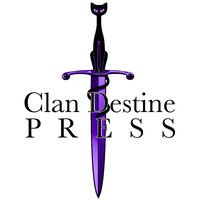Before we go one word further know that this blog entry comes with sage advice from premiere true crime writer Vikki Petraitis and who doesn't want that?
*no one raises hand*
To get where we're going however, we have to start someplace unexpected—but be assured, there's a method to our madness!
Fiction, Non-Fiction Writing & Pee
So here's the thing, as writers we believe we know things and we sometimes let those things creep into our stories.
 I think most of us think we "know" urine is sterile (it is not!), and perhaps we've written ye ol' sea captain as reassuring some jelly-stung laddy that a little bit of pee will take away the sting except absolutely the urine really won't.
I think most of us think we "know" urine is sterile (it is not!), and perhaps we've written ye ol' sea captain as reassuring some jelly-stung laddy that a little bit of pee will take away the sting except absolutely the urine really won't.
Instead you'll find reality's to be a dozen times more interesting so before peppering your non-fiction with erroneous fact, before putting a dubious fact into our fiction have a look.
I learned, for example, that urine comes in pretty much every colour of the rainbow and if that image over there is not a dozen times more squeamishly cool than having a character whizz on another character for the purposes of pain relief I just absolutely don't know what is (article link below).
Which now brings us to the wisdom of Australia's premiere true crime writer Vikki Petraitis, author of such books as The Frankston Murders and The Phillip Island Murder.
2 Tips from True Crime Writer Vikki Petraitis
"Start at the end," suggests Vikki, "What do you want your readers to walk away knowing about your subject? When I set out to write a book on the Frankston serial killer, Paul Denyer, I wanted my readers to know what he did because cases like this can be sensationalised in the media and rumours abound. If I can sort through this and give a measured account of exactly what he did, then the readers know the truth.
"The second question about the end that you should ponder at the beginning is: What learning can be gained by an exploration of this subject? Once you know the learning, it can help you choose the stories to tell.
"I recently read Nancy Wake by Peter FitzSimons. At the end of the book, I imagine that FitzSimons wanted the reader to know what a hero Nancy Wake was during the war. So out of the thousands of things she must have done during her time with the resistance, he chose anecdotes and events that showed her as plucky and laconic and tough. Out of these stories, we learn about true heroism and sacrifice and humanity in the face of war."
Vikki sums up by encouraging us with the advice of Antoni Jach, creative writing teacher and Masterclass expert.
"He asks his students two questions: What’s the story about? What’s the story really about?"
What's your story about? Share with us in the comments (moderated to foil spam bots).
